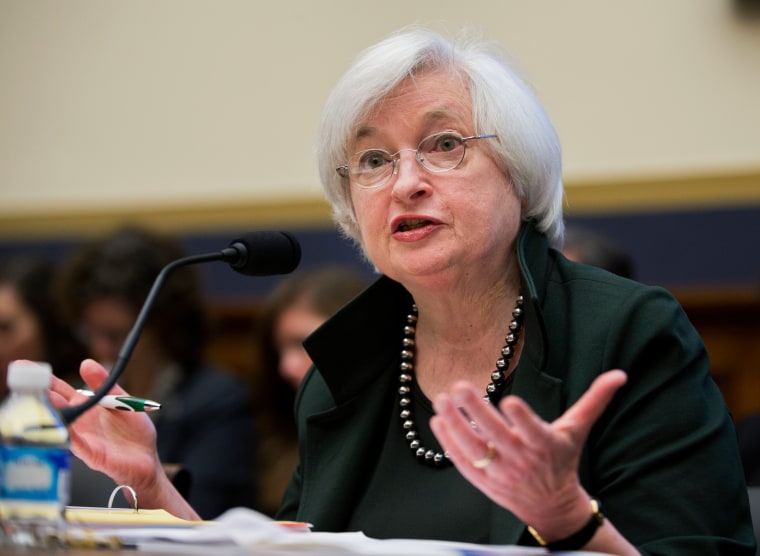Federal Reserve Chair Janet Yellen on Wednesday resisted calls for more congressional oversight and intervention into the U.S. central bank, as members of a House of Representatives panel criticized her and other policymakers for failing to be more accountable.
One Republican lawmaker also continued his attack on the Fed's response to a 2012 information leak, saying Yellen and the central bank had failed to properly respond.
In her semiannual testimony to Congress, Yellen detailed the Fed's flow of information to financial markets as well as its press conference and audit schedules as evidence that the central bank practiced a high level of transparency.
She also said the Fed remains on track to raise interest rates this year, with labor markets expected to steadily improve and turmoil abroad unlikely to throw the U.S. economy off track.
Rep. Sean Duffy, a Wisconsin Republican, pulled no punches during Yellen's testimony, accusing the Fed of deliberately sweeping under the rug an investigation into the 2012 leak of market-sensitive information to a private financial newsletter.
Texas Rep. Jeb Hensarling, the Republican chairman of the House Financial Services Committee, demanded the central bank be more predictable and implored it to cooperate with the investigation.
Hensarling repeated his view that the Fed should follow a predictable monetary policy rule rather than exercise wide discretion, and cited his concerns over the central bank's wide regulatory powers obtained after Dodd-Frank.
But Yellen pushed back.
"I think we need a systematic policy. But I would strongly resist agreeing to follow any rule where the stance of monetary policy depends on only the current readings of two economic variables, which is what your reference rule relies on," Yellen said.
Financial markets did not react to Yellen's remarks.
